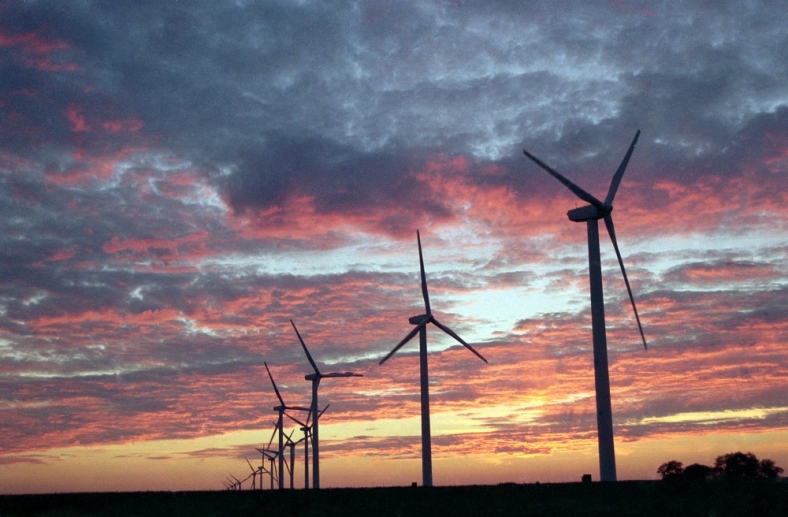The Benefits of Wind Energy
Wind energy is a sustainable and renewable source of power that has gained significant attention in recent years. In this article, we will explore the numerous benefits of wind energy and its positive impact on the environment and society.
Reduced Carbon Emissions
One of the key advantages of wind energy is its ability to reduce carbon emissions. Unlike fossil fuels, wind power does not produce harmful greenhouse gases, such as carbon dioxide, that contribute to climate change. By harnessing the power of the wind, we can significantly decrease our reliance on fossil fuels and mitigate the effects of global warming.
Renewable and Sustainable
Wind energy is a renewable and sustainable source of power. As long as the wind blows, we can generate electricity without depleting natural resources. This makes wind energy a reliable and long-term solution to meet our growing energy needs.
Energy Independence
Investing in wind energy allows us to reduce our dependence on foreign sources of energy. By harnessing the power of the wind within our borders, we can enhance our energy security and reduce our vulnerability to geopolitical uncertainties.
Job Creation and Economic Growth
The wind energy sector has the potential to create numerous job opportunities and drive economic growth. From manufacturing and installation to maintenance and operation, the development of wind farms stimulates local economies and supports a skilled workforce.
Cost-Effective Energy Source
Wind energy has become increasingly cost-effective in recent years. Advances in technology, such as larger and more efficient turbines, have significantly reduced the cost of producing wind power. As a result, wind energy has become competitive with traditional forms of energy generation, making it an attractive option for both individuals and businesses.
Minimal Environmental Impact
Compared to other forms of energy generation, wind energy has a relatively low environmental impact. Wind turbines take up a small footprint and can be installed on land or offshore. Additionally, modern wind turbines are designed to minimize noise pollution and mitigate any potential harm to wildlife.
Community Benefits
Wind energy projects often bring direct benefits to local communities. Developers often work closely with communities to ensure that they receive a share of the economic benefits generated by wind farms. This can include financial compensation, investments in local infrastructure, and support for community initiatives.

Wind energy offers numerous benefits that make it a compelling choice for sustainable and clean power generation. From reducing carbon emissions and enhancing energy independence to driving economic growth and creating job opportunities, wind energy has the potential to transform our energy landscape. By embracing wind energy, we can pave the way for a greener and more sustainable future.
Frequently Asked Questions about the Benefits of Wind Energy
1. What are the environmental benefits of wind energy?
Wind energy is a clean and renewable source of power, producing no greenhouse gas emissions or air pollutants that contribute to climate change or air pollution.
2. How does wind energy help reduce dependence on fossil fuels?
By harnessing the power of wind, we can generate electricity without burning fossil fuels, reducing our reliance on non-renewable energy sources and helping to mitigate the negative impacts of fossil fuel extraction and consumption.
3. Are there economic benefits associated with wind energy?
Yes, wind energy projects create jobs in manufacturing, construction, maintenance, and operation. Additionally, wind power can provide a stable source of income for landowners who lease their land for wind turbine installations.
4. Does wind energy help in reducing electricity costs?
Wind energy can help lower electricity costs by providing a source of power that is not subject to fuel price volatility. As technology advances and becomes more efficient, the cost of wind energy continues to decrease.
5. Can wind energy help improve public health?
Yes, by replacing fossil fuel power plants with wind turbines, we can reduce air pollution and improve air quality, leading to better public health outcomes and a decrease in respiratory and cardiovascular diseases.
6. Are there any benefits of wind energy for rural communities?
Wind energy projects can bring economic development to rural communities by providing job opportunities and additional revenue streams through land lease agreements. This can help revitalize local economies and improve infrastructure.
7. Does wind energy contribute to energy independence?
Yes, wind energy reduces the need for importing fossil fuels, thus enhancing energy independence and reducing reliance on foreign energy sources.
8. What role does wind energy play in combating climate change?
Wind energy is a crucial component of the transition to a low-carbon economy. By displacing fossil fuel-based electricity generation, wind power helps reduce greenhouse gas emissions and mitigate the impacts of climate change.
9. Can wind energy help diversify the energy mix?
Absolutely. Wind energy diversifies the energy mix by providing a renewable alternative to traditional fossil fuel-based power generation. This diversification enhances energy security and reduces the risks associated with relying heavily on a single energy source.
10. Are there any long-term benefits of investing in wind energy?
Investing in wind energy infrastructure offers long-term benefits such as reduced carbon emissions, stable and predictable energy prices, job creation, and technological advancements that can drive innovation and economic growth.




